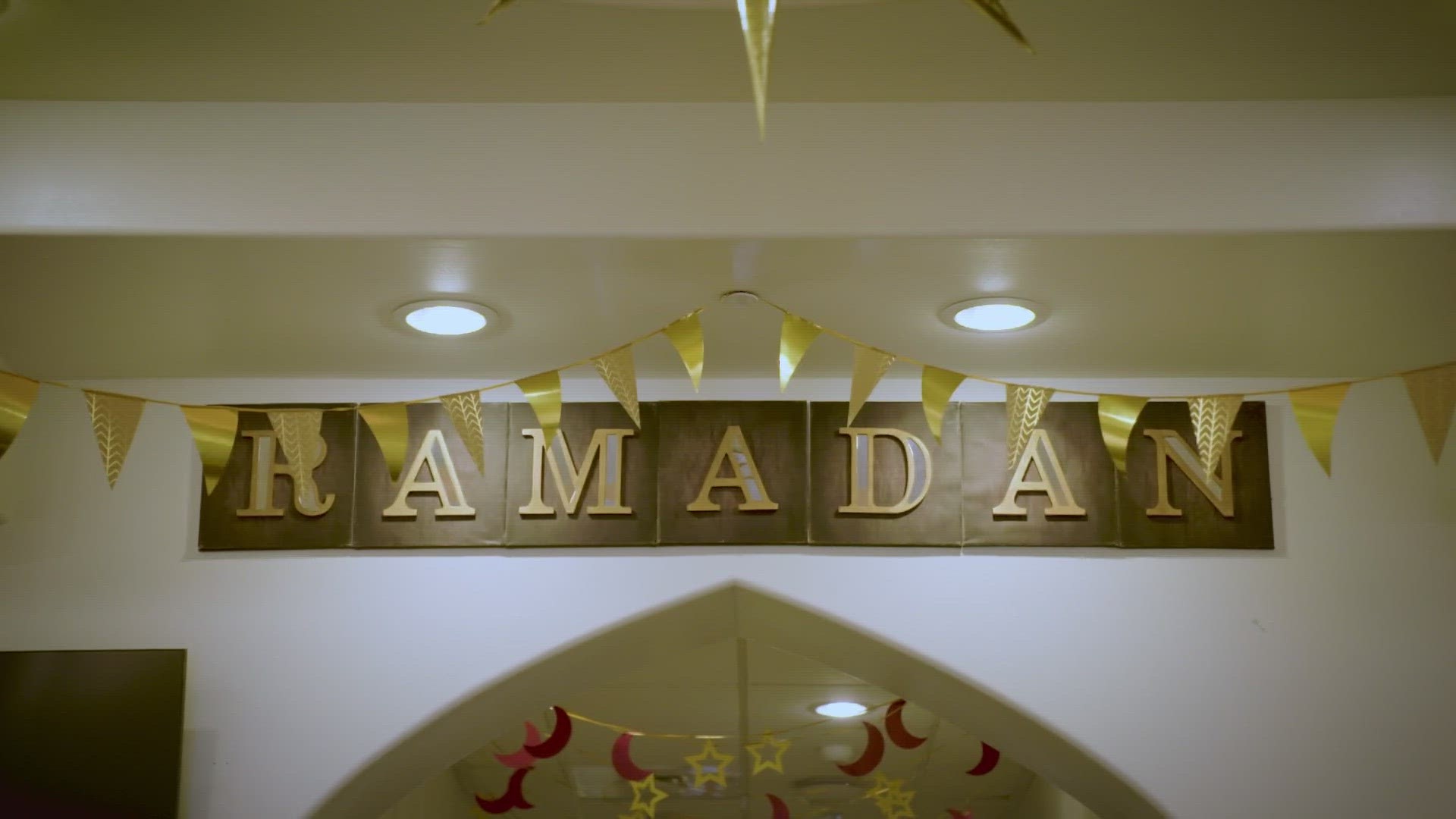REDMOND, Wash. — The holy month of Ramadan began the evening of March 10. For Muslims all over the world, it's a month of fasting and one of the key pillars of Islam.
From sunrise to after sunset, Muslim Washingtonians, like the men and women at the Muslim Association of Puget Sound (MAPS) in Redmond, abstain from food, drinks, and even water during the month of Ramadan.
It's one of the most important months in Islam.
Alla Badr is a volunteer lecturer at the mosque.
"It's a month of giving, it's a month of charity, it's a month of human relief, it's a month of equity between people," Badr said. "It's a month of thinking of those that don't have and helping them in every way we can."
Observing the holy month is also one of the five pillars of the religion along with charitable giving, journeying to Mecca, daily prayers and believing only in Allah with Mohammad as his messenger.
During the fast, nothing else changes for people's day-to-day routines.
"We go about our days we go to school, we go to university, we study, go to work, and then at the end, we break fast around 7 p.m.," Badr explained. "You find a lot of happiness jubilation and family gatherings during Ramadan."
But also during the fast, worshippers are strengthening their religious practice by refraining from what Islam considers indulgent behaviors — from binging TV to having sex.
"Because of the fasting you end up to defocus the things that we focus on every day," Badr said. "Whether it's having the extra hot cappuccino in the morning, the donut or Big Mac in the middle of the day, the Netflix binge watching, that really defocuses with the fasting and helps you reset yourself and the continuation of it is like a program. So you almost do a training program, the idea being that once you've gone through this transformative month you're able to keep up with that and gives you energy the rest of the year."
Every evening, the fast is broken with what's called an Iftar dinner.
This year, Ramadan started last Sunday and comes to an end on April 9, with a celebration and prayer back at the mosque, called Eid.
According to the Council on American Islamic Relations (CAIR), there are more than 100,000 Muslims in Washington, and the number is growing.
Badr said the growth can be seen in the number of Eid services they provide at the mosque.
"We used to have one, Eid prayer which was attended by maybe 200 people," Badr said. "We now have five at this Masjid. and so it starts in the morning and it goes until noon with like a 30 min break, and it's probably attended by three four thousand people every time. And they open up the doors and people can sit outside, you should come back and visit."
Eid services are open to the public. Leaders at MAPS said they welcome anyone no matter their religion on that special day.
In the meantime for the next 22 days, you can say: "Ramadan Mubarek" or happy Ramadan!

